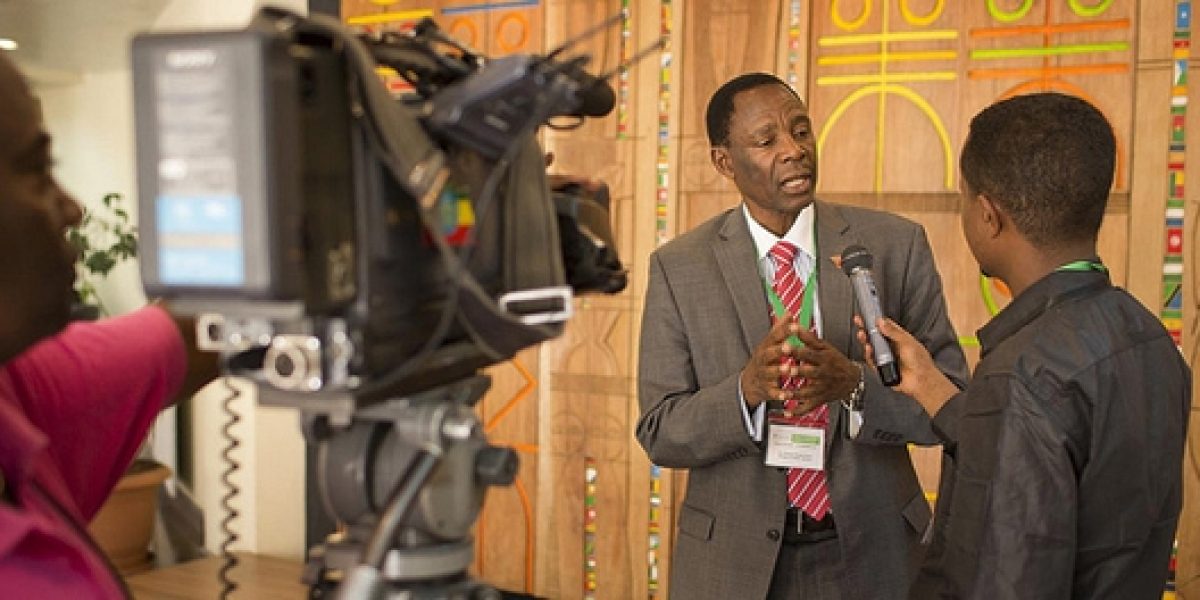This anniversary is an opportunity for South Africa to reflect on the sacrifices made to achieve democracy and the progress made in the promotion and protection of democracy and human rights in the country. But it is also a day to reflect on the human rights situation across the continent and more specifically the important role of the fourth estate – the media – in guaranteeing political accountability, transparency and good governance.
At the time, several South African newspapers barely mentioned the Sharpeville tragedy, fearing a backlash from the apartheid government. 55 years later, many African press houses practice similar self-censorship to avoid the perceived negative consequences.
While issues of gender, migration and xenophobia typically dominate the discourse about human rights in Africa, the right to freedom of expression and opinion, as specified under Article 19 of the United Nations Human Rights Declaration, is often neglected. The constitutions of many African countries enshrine the freedom of the press, and freedom of opinion and expression. The African Charter on Human and People’s Rights, in Article 9, claims that every individual shall have the right to receive information. Are these goals being upheld? Cases across the continent suggest that adherence to these goals is not a top priority.
In South Africa, the press are claiming that the country’s democracy is in decline. One recent example cited is the use of a cell phone scrambling device in parliament during the president’s State of the Nation Address, which was seen as an assault on the right to freedom of expression. It prevented members of parliament (MPs) and journalists from live-tweeting the proceedings. Only when opposition MPs lodged strong objections was the signal jamming reversed. Not only was the jamming in contravention of the Electronic Communications Act, but journalists who attempted to interview MPs who were evicted after interrupting the president’s speech were threatened with arrest and withdrawal of their accreditation.
A common issue experienced by the media in many African countries is pressure from the ruling party to promote developmental achievements rather than to criticise those in power. Journalists in Ethiopia, for example, have to contend with pervasive telephone surveillance, jamming of the broadcasting of information, censorship and the closing of private publications. The Ethiopian government stifles media dissent through the use of a draconian anti-terrorism law. Charges are brought forward on the basis of government defamation or ‘outrages against the constitution’. Consequently, Ethiopia boasts the second highest rate of journalist imprisonment on the continent, after Eritrea.
Burkina Faso also faces similar constraints, with media houses being forbidden to insult the president. Defamation is criminally chargeable under Burkinabé common law, and there is no law ensuring access to information. Self-censorship is often practiced in the country, especially as a result of the 2009 Communications Act which allows for the interception of communications without a warrant.
However, as a member of the African Court on Human and People’s Rights (ACHPR) the country has begun to pave the way for African nations to respect media freedom. The case of Burkinabé editor Lohé Issa Konaté, sentenced to a year’s imprisonment for criminal defamation after publishing accusatory articles about a public prosecutor, resulted in the African Court ruling that criminal defamation laws cannot include disproportionate sanctions or custodial sentences.
This ruling is binding on all African Union member states and will serve to limit the ability of governments to charge media personalities unfairly and unjustly. Unfortunately, Konaté served his entire sentence before his case was even heard by the African Court. Nevertheless, Burkina Faso is one of only seven ACHPR members that permits civil society to bring cases before the Court.
Openness, transparency and accountability are essential to good governance, which relies largely on the ability of civil society and the media to hold those in power to account. These values are enshrined in African constitutions, yet are not always respected in practice. Human Rights Day provides citizens with a reminder that they are all responsible for holding governments accountable and building societies that respect human rights.
It is time for Africans to take a stance on a right that is crucial to good governance ─ the right to freedom of information. The Konaté case, where a citizen successfully challenged his government in a continental court, sets an important precedent. Citizens who may not have appropriate domestic mechanisms to hold their governments accountable can look at continental institutions as alternatives.
The development of home-grown mechanisms such as the ACHPR is important for the promotion of human rights and good governance on the continent. However, these institutions require support and strengthening to be effective.








